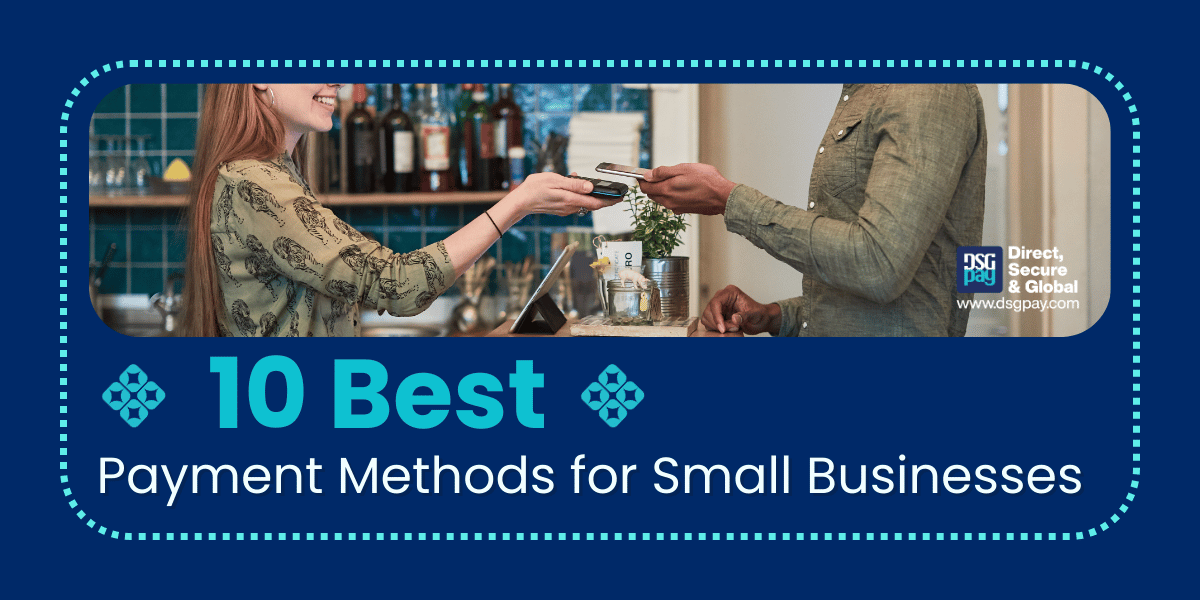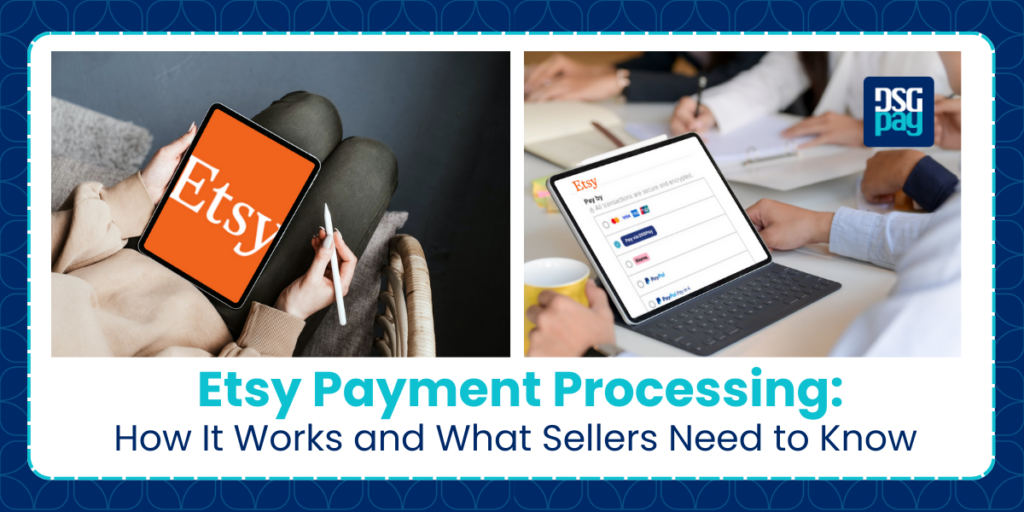It’s without a question that every transaction counts when you are a small business owner. That’s why managing payments efficiently is one of the most essential things to consider. Choosing the right payment method helps your business with smooth cash flow and puts you in a better position to be a trustworthy business to your customers.
With so many different payment methods out there, we know it can be overwhelming to look for one that aligns with your business needs. You want to make sure it’s cost-effective, reliable, and easy to integrate. We’ve done the hard work for you by putting together a list of some of the best payment methods for small businesses so you can make informed decisions for your thriving business.
Quick Overview
Payment Methods for Small Businesses
To help you make the best choice, we’ve rounded up ten of the most effective payment methods for small businesses, each designed to meet your specific needs and help your business succeed.
1. Direct Debit
Direct debit can be a streamlined payment method for small businesses. It allows you to pull payments directly from customers’ bank accounts.
It’s one of the best ways for small businesses to accept payments that are recurring or subscription-based. Direct debit can ensure regular and predictable cash flow if your small business sells recurring services or memberships.
Direct debit payment methods can also be used for one-off payments.
Direct debit can help your small business avoid the high transaction fees and payment failure rates that usually accompany credit card payments.
It’s important to note that direct debit can take at least three days to clear your account, so it might not be the best payment method for small businesses that need to collect payment instantly.
2. Debit and Credit Card Payments
Debit and credit cards are some of the most common payment methods for small businesses. Since customers overwhelmingly prefer to pay using a card, small businesses need to set up credit card payments for their business to not lose out on sales.
Card payments can allow you to offer a smooth and fast checkout process. Customers might also be more inclined to make larger transactions on credit cards, allowing small businesses to expand their reach and demographic.
Card payments come with security features that help protect both small businesses and customers from potential fraud. It’s one of the most secure payment methods for small businesses.
The downsides of credit and debit card payments are the high card payment processing fees for small businesses, chargebacks and disputes, and maintenance costs for services like point-of-sale terminals or online payment gateways.
Some credit card processing services for small businesses are Stripe, Square, and Paypal, among others.

3. Digital Wallets
Digital or virtual wallets are online payment methods that allow customers to store their payment information on their mobile devices securely.
Digital wallets are quickly becoming one of the preferred payment methods for small businesses as they are convenient for customers. Consumers can use digital wallets like Apple Pay or Google Pay to make purchases with simply a tap of their phone using the NFC technology. This is a contactless payment option for small businesses.
Small businesses will need a compatible point-of-sale system or payment gateway to process payments made using digital wallets.
Digital wallets are the fastest-growing payment method in the world, with Asia leading the charge. DSGPay’s multi-currency virtual accounts allow you to streamline transactions, facilitate cross-border transactions, and receive funds from local and SWIFT payment networks.
4. Cash Payments
While cash usage has been on a steady decline, cash payments are still accepted as a payment method for small businesses. Unlike the previously mentioned small business payment options, cash allows immediate receipt of funds. Plus, accepting cash means little to no processing fees.
However, handling cash comes with the security risks of theft or loss. And from an accounting perspective, cashless payments are more convenient and easier to keep track of.
5. Cheque Payments
The use of cheques is also becoming less common as different online payment services for small businesses grow in popularity. Cheque payments involve a small business receiving a physical cheque and then the business having to deposit the cheque in the bank account.
Accepting cheques also has no upfront fees and can provide your small business with a paper trail for recordkeeping.
However, employing this method can be time-consuming as it would involve manual accounting processes and having to deposit cheques at the bank.
6. Online Payment Gateways
One of the best payment methods for small businesses is online payment processing. Small businesses can integrate an online payment gateway on their website.
Online payment gateways will provide you with the seamless and secure option of accepting payments directly from their website or e-commerce platforms. The gateways support different types of payment options, such as debit or credit cards and digital wallets.
You’ll need to compare the features and price structures of different gateways before selecting the one that suits your business needs the best.
7. Buy Now Pay Later (BNPL)
Small businesses can offer their customers the option of Buy Now Pay Later, or BNPL. This payment method allows the customers to make a purchase immediately but pay the amount in instalments spread out over a fixed period.
Accepting BNPL can potentially grow your customer base and boost your sales. While the customers will pay in instalments, businesses usually receive the funds upfront.
However, adding this option can also bring more complexity to your payment processing management. You might also be subject to high fees, which can cut into your profitability.

8. Email Invoices
If you’re an independent contractor, email invoicing might be one of the best ways to accept payments for your small business.
You can provide the details of how to proceed with the payment in the email to your client. This can include embedding payment links that redirect your client to a payment page where they can enter their card or bank details.
The disadvantage of email invoices is that they require the clients to take manual action to pay you, which might lead to delays in payments.
9. Bank Transfers
Bank transfer as a payment method for small businesses involves sending funds directly from one bank account into another. Wire transfers and Automated Clearing House (ACH) are considered to be methods of bank transfers.
Bank transfers are secure and cost-effective with low fees. However, they can take days to process.
10. Cryptocurrency
Finally, cryptocurrency can also be a payment method for small businesses. Cryptocurrency payments are a decentralised payment option that might attract a different segment of tech-savvy customers.
Keep in mind that the volatility of cryptocurrency valuations, uncertain regulatory landscape and complex tax implications can negatively impact the transactions.
Popular Payment Platforms for Small Business
Now that you’ve learned about the potential payment method suitable for your small business, let’s explore some of the most popular payment platforms used by many small businesses in the market.
| Payment Platform | Transaction Fees | Subscription Fees |
| Square | 2.6% + 10¢ in-person/payment, 2.9% + 30¢ online/payment | No monthly fees |
| Stripe | 2.9% + 5¢ online/payment, 2.5% + 30¢ in-person/payment | No monthly fees |
| Helcim | Base fees + 0.3% + 8¢ in-person/payment, 0.05% + 25¢ keyed/payment | No monthly fees |
| Shopify | 2.4% – 2.9% + 30¢/payment | Starts at $29 per month, paid annually |
| Clover | 2.3% – 2.6% + 10¢ in-person/payment, 3.5% + 10¢ online/payment | Up to $69.95 |
| Payment Depot | Base fees + 7¢ – 15¢/payment | $79 – $199 |
| Stax | Base fees + 8¢ – 15¢/payment | $99 – $199 |
DSGPay is Your Ideal Payment Provider
It’s important to select the right payment methods for your small business based on the nature of your business, security measures, cost and fees, convenience, and customer preferences.
With DSGPay, you can streamline your sales process, enhance customer satisfaction, and improve your cash flow by collecting payments more efficiently. We understand the unique challenges that small and medium-sized enterprises face better than anyone else.
Our tailored solutions are designed to meet these specific needs, ensuring that your business runs smoothly and thrives in a competitive market. Whether it’s managing multi-currency accounts, speeding up payment processing, or providing secure and reliable international transfers, DSGPay is here to support your growth and success every step of the way.
How DSGPay Can Support Your Small Business Operations
| Feature | Details |
| Multi-Currency Management | – Manage funds in 14 different currencies from a single account. – Ideal for global business operations. – Handle money in USD, GBP, EUR, and more. |
| Faster Payments & Reliability | – Receive money up to 7 days faster. – Achieve 95% settlement rates. – Experience 10% lower refund rates. |
| Cost-Effective International Transfers | – Send money internationally to 81 countries, including key Asian financial hubs. – Avoid expensive SWIFT transfers and card fees. – Benefit from mid-market rates and tailored features. |
| Enhanced Security & Instant Notifications | – Safer than traditional card payments. – Instant payment notifications will keep you informed. |
| Build Trust with Local Account Details | – Display your business name in the account details. – Establish credibility in key financial hubs. |



